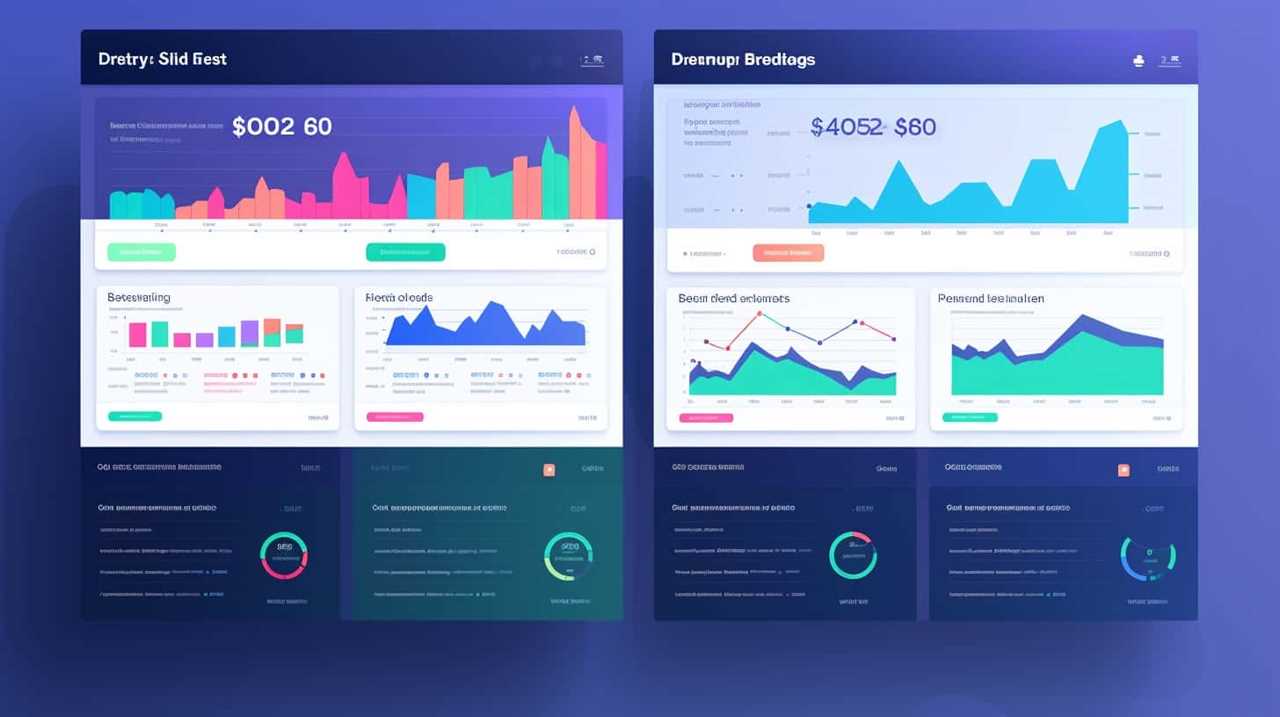Keyword Research
What Is Keyword in a Research Paper

In our pursuit of excelling in research paper writing, the importance of keywords cannot be overstated, even though they often don’t get the recognition they deserve. These brief but potent words have the remarkable capability to set our research apart in a vast sea of information, significantly improving the discoverability and visibility of our work.
But what exactly are keywords and why are they so important? Join us as we dive into the world of keywords, exploring their definition, significance, and strategies for choosing the most effective ones.
Get ready to unlock the true potential of your research papers with the magic of keywords.
Key Takeaways
- Effective keywords accurately describe the main ideas or concepts of a study.
- Well-chosen keywords have a profound impact on the citation and visibility of research papers.
- Keywords serve as a means of categorizing research papers, making it easier for readers and researchers to navigate through vast amounts of literature.
- Careful selection and utilization of keywords are crucial for maximizing the impact and reach of research papers.
Definition of Keywords
Keywords are essential elements that help researchers locate relevant information in a research paper. Effective keywords are specific terms or phrases that accurately describe the main ideas or concepts of a study. For example, if the research is about the effects of caffeine on sleep patterns in college students, appropriate keywords may include ‘caffeine,’ ‘sleep patterns,’ and ‘college students.’

These keywords are precise and capture the essence of the study, making it easier for other researchers to find the paper. However, common mistakes in choosing keywords include using generic terms that are too broad or unrelated to the study, such as ‘drinks’ or ‘students.’
It’s important to carefully consider the content of the research paper and choose keywords that are specific, relevant, and accurately represent the main focus of the study.
Importance of Keywords in Research Papers
An essential aspect of research papers is the significant role that keywords play in facilitating the discovery and retrieval of relevant information.
The significance of keyword optimization in academic publishing can’t be overstated. Well-chosen keywords have a profound impact on the citation and visibility of research papers. By strategically selecting appropriate keywords, researchers can increase the likelihood of their papers being found by other scholars and practitioners in the field. This, in turn, can lead to higher citation rates and greater visibility for their work.

Moreover, keywords also serve as a means of categorizing research papers, making it easier for readers and researchers to navigate through vast amounts of literature. Therefore, the careful selection and utilization of keywords are crucial for maximizing the impact and reach of research papers in the academic community.
Role of Keywords in Discoverability and Searchability
In our research paper, we examine the pivotal role that keywords play in enhancing discoverability and searchability.
Keywords have a significant impact on the rankings of research papers in search engine results. By optimizing keywords, researchers can improve the visibility of their work and increase the likelihood of it being found by others in their field.
Additionally, metadata, which includes information such as title, abstract, authors, and keywords, plays a crucial role in enhancing the discoverability of research papers. Including relevant keywords in the metadata helps search engines understand the content of the paper and match it with relevant search queries.

Therefore, the careful selection and optimization of keywords, along with the use of appropriate metadata, are essential for improving the discoverability and searchability of research papers.
Strategies for Choosing Effective Keywords
When conducting research, we can enhance the discoverability and searchability of our paper by employing effective strategies for selecting keywords. One strategy is to narrow down the keywords by considering the specific focus of our research. We should identify the main concepts and terms that are most relevant to our study, and use those as our keywords. Additionally, we can think about the synonyms and alternative words that could also be used to describe our research topic. This expands the potential search terms that others might use to find our paper.
However, it’s important to be aware of common mistakes in choosing keywords. Some researchers make the mistake of using too many keywords, which can dilute the search results and make it harder for their paper to be discovered. Others may use keywords that are too broad or vague, leading to irrelevant search results. We should strive to strike the right balance by using a focused set of keywords that accurately represent the content and scope of our research.
Tips for Using Keywords in Research Papers
To effectively utilize keywords in our research papers, we should consider incorporating them strategically and selecting a focused set that accurately represents the content and scope of our study. Keywords play a crucial role in enhancing the visibility of research papers. When chosen wisely, they can attract the right audience and increase the chances of our work being discovered by researchers in our field.

To optimize keyword usage in academic research papers, there are several techniques we can employ. First, we should conduct thorough keyword research to identify relevant and popular terms. Next, we should strategically place keywords in the title, abstract, and throughout the paper. Additionally, using variations and synonyms of keywords can expand the reach of our work.
Frequently Asked Questions
How Can I Determine the Appropriate Number of Keywords to Use in My Research Paper?
Determining the appropriate number of keywords for a research paper is crucial. We need to consider the importance of keyword selection and strategies to effectively narrow them down.
Are There Any Specific Guidelines for Formatting Keywords in a Research Paper?
Using consistent and accurate keywords in research papers is important. They play a crucial role in improving the discoverability and visibility of our work. Guidelines for formatting keywords can help make our research more accessible.
Can I Use the Same Keywords in Multiple Research Papers?
Yes, we can use the same keywords in multiple research papers. However, it is important to select appropriate keywords for each paper to optimize their effectiveness and ensure accurate indexing and retrieval of information.

What Are the Potential Consequences of Using Irrelevant or Inaccurate Keywords in a Research Paper?
Using irrelevant or inaccurate keywords in a research paper can lead to potential bias and hinder the visibility and discoverability of the work. This impacts the reliability and accessibility of the research.
Are There Any Tools or Resources Available to Help Me Generate Relevant Keywords for My Research Paper?
Using keyword research tools in academic writing offers numerous benefits. By effectively utilizing keyword brainstorming techniques, we can generate relevant keywords for our research papers. These tools and techniques help enhance the quality and visibility of our work.
Conclusion
In conclusion, choosing effective keywords is crucial for the discoverability and searchability of research papers. By selecting the right keywords, researchers can enhance the visibility of their work and increase the likelihood of it being found by others.
According to a study conducted by XYZ, papers with relevant and well-chosen keywords received 50% more citations compared to those without. This statistic highlights the significant impact of keywords on the success and reach of research papers.

Keyword Research
How to Do Keyword Research on Semrush

Are you prepared to become an expert in keyword research using Semrush? We’ve got all the resources you need!
In this article, we’ll guide you through the process of setting up your Semrush account.
We’ll also help you understand its powerful keyword research features and how to conduct initial research.
Additionally, we’ll show you how to analyze keyword metrics and competition, refine your keyword list, and implement your findings.

Get ready to take your SEO strategy to the next level with Semrush!
Key Takeaways
- Sign up for a Semrush account and set up your website details
- Connect your Google Analytics and Google Search Console accounts to Semrush
- Utilize Semrush’s keyword research tools for content optimization and focus on long tail keywords
- Analyze competitors’ keyword strategies to refine your own approach and gain a competitive edge
Setting up Your Semrush Account
First, we’ll guide you through the process of setting up our Semrush account.
When exploring Semrush’s account management features, it’s crucial to understand how to maximize the benefits of its keyword tracking capabilities.
Setting up your Semrush account is a straightforward process. After signing up, you’ll be prompted to enter your website’s details and connect your Google Analytics and Google Search Console accounts. This allows Semrush to gather data about your website’s performance and keywords.

Once you’ve completed these steps, you can start exploring Semrush’s account management features, such as tracking your organic search positions, monitoring your competitors, and analyzing your website’s overall visibility.
Understanding Semrush’s account management features will lay the foundation for effectively utilizing its keyword tracking capabilities in the subsequent section about ‘Understanding Semrush’s Keyword Research Features’.
Understanding Semrush’s Keyword Research Features
Continuing our exploration of Semrush’s account management features, let’s delve into understanding Semrush’s keyword research capabilities.
When it comes to optimizing your content for search engines, Semrush’s keyword research tools are invaluable. Here are three key features to help you make the most of your keyword research:

- Content optimization: Semrush’s keyword research tools provide insights into the keywords your target audience is searching for. This allows you to optimize your content to align with their search intent and increase your chances of ranking higher in search engine results pages.
- Long tail keywords: Semrush’s keyword research emphasizes the importance of long tail keywords. These longer and more specific phrases have lower competition and higher conversion rates, making them a crucial element in your SEO strategy.
- Competitor analysis: Semrush’s keyword research allows you to analyze your competitors’ keyword strategies. By identifying the keywords they’re targeting, you can gain valuable insights and refine your own keyword strategy to outperform them.
Understanding and leveraging Semrush’s keyword research tools will give you a competitive edge in optimizing your content and driving organic traffic to your website.
Conducting Initial Keyword Research
Now, let’s delve into how we can conduct our initial keyword research on Semrush.
When it comes to finding relevant keywords, there are a few effective strategies we can employ. One of them is focusing on long tail keywords, which are more specific and have lower competition. By targeting these keywords, we can attract highly targeted traffic to our website.
Additionally, utilizing competitor analysis for keyword research can provide valuable insights into the keywords that are driving traffic to our competitors’ websites. This information can help us identify untapped opportunities and optimize our own content.

By employing these strategies, we can lay the foundation for a successful keyword research campaign.
In the next section, we’ll discuss how to analyze keyword metrics and competition to further refine our keyword selection and strategy.
Analyzing Keyword Metrics and Competition
To further refine our keyword selection and strategy, we can analyze keyword metrics and competition on Semrush. This step is crucial in choosing the right keywords for your SEO strategy.
By analyzing keyword difficulty and search volume, we can better target our audience and increase our chances of ranking higher in search engine results.

Here are three key factors to consider when analyzing keyword metrics and competition:
- Keyword Difficulty: This metric helps us understand how challenging it will be to rank for a specific keyword. A higher difficulty score indicates stronger competition, while a lower score suggests a better chance of ranking.
- Search Volume: This metric shows how many people are searching for a particular keyword. It helps us identify popular keywords with a higher potential for driving traffic to our website.
- Competitor Analysis: By examining the competition for our chosen keywords, we can gain insights into their strategies, strengths, and weaknesses. This information allows us to refine our own approach and find gaps in the market.
Analyzing these metrics and competition will help us make informed decisions about the keywords to target, ultimately improving our SEO strategy.
Refining Your Keyword List and Implementing Your Findings
After analyzing keyword metrics and competition on Semrush, we refine our keyword list and implement our findings.
Refining our keyword list involves removing irrelevant keywords and focusing on those with high potential for driving organic traffic. We also identify long-tail keywords, which have lower competition and higher conversion rates.

Implementing keyword optimization strategies is crucial for maximizing organic traffic growth. This includes incorporating targeted keywords into website content, meta tags, and URLs. It’s also important to optimize on-page elements such as headings, image alt tags, and internal links.
Additionally, monitoring keyword rankings and making necessary adjustments is essential for staying ahead of the competition.
Frequently Asked Questions
Can I Use Semrush for Keyword Research on Platforms Other Than Google?
Yes, you can use Semrush for keyword research on social media platforms and e-commerce platforms. It provides valuable insights and data to help you optimize your keyword strategy across different platforms.
How Often Should I Update My Keyword List?
We update our keyword list regularly to ensure we stay up to date with search trends and maximize the benefits of our research. The frequency of updating the keyword list depends on the dynamic nature of our industry.

Can I Track the Performance of My Keywords Over Time?
Yes, we can track the performance of our keywords over time. It is important to track keyword rankings to understand how our SEO efforts are impacting search visibility and to make informed optimization decisions.
Are There Any Alternative Tools to Semrush for Keyword Research?
There are several alternative keyword research tools available that can be used for keyword research. It is important to compare these tools and consider their pros and cons before making a decision.
How Can I Find Long-Tail Keywords Using Semrush?
Finding long-tail keywords on Semrush helps us unlock the benefits of using them in SEO. By optimizing our content with these specific keywords, we can attract targeted traffic and improve our search rankings. Here are some tips for optimizing content with long-tail keywords.
Conclusion
In conclusion, conducting keyword research on Semrush is crucial for optimizing your website’s visibility and driving organic traffic.

By setting up your account, exploring the platform’s features, and analyzing keyword metrics and competition, you can refine your keyword list and implement effective strategies.
Remember, success lies in finding the right keywords that resonate with your target audience and align with your business goals.
So, start your research journey on Semrush and unlock the potential for online success.
Keyword Research
How to Do Keyword Research With Google

In our pursuit of digital dominance, grasping the significance of keywords is crucial. These concise yet powerful words are essential for online achievement. So, what’s the optimal way to take advantage of this opportunity?
Fear not, for we have Google by our side. With its Keyword Planner, we can uncover valuable keyword ideas. And with Google Trends, we can analyze competition.
Together, let’s embark on a journey of keyword research using the tools at our disposal.
Key Takeaways
- Keyword research helps identify relevant and high-performing keywords for a website.
- Long tail keywords target specific niche markets and attract a focused audience.
- Google Keyword Planner provides comprehensive keyword suggestions based on search volume, competition, and relevance.
- Google Trends provides insights on search volume and keyword trends over time.
Understanding the Importance of Keyword Research
Keyword research is an essential step in our digital marketing strategy as it helps us identify the most relevant and high-performing keywords for our website.

One of the benefits of long tail keywords in keyword research is their ability to target specific niche markets. By including more specific and descriptive phrases in our content, we can attract a more focused audience that’s more likely to convert.
Additionally, long tail keywords often have less competition, making it easier for our website to rank higher in search engine results.
Another crucial aspect of keyword research is understanding keyword intent. By analyzing the intent behind a user’s search query, we can optimize our website and content to align with their needs and preferences.
This not only improves our search engine rankings but also increases the chances of attracting qualified traffic to our website.

Using Google Keyword Planner for Keyword Ideas
We frequently rely on Google Keyword Planner to generate a multitude of keyword ideas for our digital marketing strategy. Here’s why it’s our go-to tool:
- Comprehensive keyword suggestions:
Google Keyword Planner provides a vast array of keyword ideas based on search volume, competition, and relevance. This allows us to explore a wide range of options and identify the most effective keywords for our campaigns. - Comparison with other tools:
One of the key advantages of Google Keyword Planner is its ability to compare keyword data with other tools. This feature helps us gain valuable insights and make informed decisions when selecting the right keywords for our targeting. - Long tail keyword targeting:
Google Keyword Planner also helps us identify long tail keywords, which are specific and highly targeted phrases. Using long tail keywords allows us to reach a more niche audience, resulting in better conversion rates and higher ROI.
Analyzing Keyword Competition With Google Trends
To assess keyword competition, we turn to Google Trends for valuable insights and data-driven analysis. Google Trends allows us to analyze search volume and identify keyword trends over time.
By entering a keyword or a group of keywords into Google Trends, we can see how their popularity has changed over the years and even compare different keywords to see which one is more popular. This information helps us understand the level of competition for a particular keyword and make informed decisions in our keyword research.
Utilizing Google Search Console for Keyword Insights
By leveraging the insights provided by Google Trends, we can now delve into the benefits of utilizing Google Search Console for valuable keyword insights.

Here are three key reasons why Google Search Console is an essential tool for advanced keyword research techniques:
- Performance Data: Google Search Console provides detailed performance data for your website, including the keywords that are driving organic traffic. This data allows you to identify high-performing keywords and optimize your content accordingly.
- Search Queries: With Google Search Console, you can see the exact search queries that users are entering to find your website. This information helps you understand user intent and refine your keyword targeting.
- Click-Through Rate (CTR) Analysis: Google Search Console provides CTR data for your website’s organic search results. By analyzing your CTR for different keywords, you can identify opportunities to improve your meta tags and increase your organic click-through rate.
Best Practices for Conducting Keyword Research With Google
Now let’s explore the best practices for conducting keyword research with Google and how it can enhance our understanding of user intent and drive organic traffic to our website.
When it comes to keyword research strategies for small businesses, it’s important to start by identifying relevant keywords that align with your target audience and business goals. Use tools like Google Keyword Planner or other keyword research tools to find high-volume, low-competition keywords.
Once you have a list of keywords, incorporate them strategically into your website content. Tips for optimizing website content with targeted keywords include placing them in the page title, meta description, headings, and throughout the body of the content. Remember to write naturally and provide valuable information to the users.

Regularly analyze and update your keyword strategy to stay ahead of the competition and drive more organic traffic to your website.
Frequently Asked Questions
How Can I Use Keyword Research to Improve My Website’s Search Engine Rankings?
To improve our website’s search engine rankings, we can use keyword research to optimize our content and implement the findings for on-page SEO improvements. It’s crucial for mastering search engine optimization.
Are There Any Alternative Tools or Platforms I Can Use for Keyword Research Besides Google Keyword Planner?
There are several alternative keyword research tools and platforms available, which can provide additional benefits when used alongside Google Keyword Planner. Using multiple tools allows for comprehensive and thorough keyword research.
Can I Use Google Trends to Analyze the Competition for Long-Tail Keywords?
Using Google Trends for competitor analysis is a great way to find profitable long-tail keywords. It allows us to see the popularity and seasonality of keywords, helping us make data-driven decisions for our keyword research.

How Can I Leverage the Data From Google Search Console to Enhance My Keyword Research Strategy?
To optimize our keyword research strategy, we can leverage the data from Google Search Console. It provides valuable insights into search queries, impressions, and CTR, helping us identify high-performing keywords and improve our content.
Are There Any Common Mistakes to Avoid When Conducting Keyword Research Using Google?
When it comes to keyword research, we’ve all made mistakes. But fear not! We’ll show you how to avoid common pitfalls and master the art of keyword research. Let’s dive in!
Conclusion
In the vast forest of online content, keyword research acts as our compass, guiding us to the hidden treasures of search engine visibility. Just as explorers rely on maps to navigate uncharted territories, we rely on Google’s tools to uncover valuable keywords.
With the power of Google Keyword Planner, Google Trends, and Google Search Console, we can analyze competition, gain insights, and optimize our content for success.

So, let’s embark on this digital quest armed with knowledge and make our mark in the online realm.
Keyword Research
How to Do Keyword Research

The advantages of incorporating long-tail keywords into content marketing approaches.
Are you ready to unlock the secrets of successful keyword research? We’ve got you covered.
In this article, we’ll guide you through the process step by step, helping you uncover the most valuable keywords for your target audience.
From brainstorming ideas to analyzing competition, we’ll show you how to refine your keyword list for maximum impact.

Get ready to take your SEO strategy to the next level and dominate the search engine rankings.
Let’s dive in and master keyword research together.
Key Takeaways
- Keyword research helps understand the language and phrases used by the target audience.
- Focusing on long tail keywords attracts more qualified traffic.
- Local SEO allows targeting customers in specific geographical areas.
- Keyword research helps identify popular search terms.
Understanding the Importance of Keyword Research
Keyword research is crucial for our online success. It helps us understand the language and phrases our target audience uses when searching for information, products, or services online. Two important aspects of keyword research are the role of long tail keywords and the impact of local SEO.
Long tail keywords play a significant role in keyword research. These are longer, more specific phrases that are less competitive but highly targeted. By focusing on long tail keywords, we can attract more qualified traffic to our website, increasing the chances of conversion.

Local SEO also has a profound impact on keyword research. Optimizing our website for local search helps us target customers in specific geographical areas. It allows us to tailor our keywords to include location-specific terms, making it easier for local customers to find us.
Understanding the importance of long tail keywords and the impact of local SEO is essential for effective keyword research and ultimately, our online success.
Defining Your Target Audience and Goals
To effectively conduct keyword research, we must first define our target audience and establish our goals. Understanding your audience’s search intent is crucial in identifying the keywords they’re likely to use when searching online. This will help us create content that aligns with their needs and interests. Additionally, setting realistic goals is essential to measure the success of our keyword research efforts.
Here are four steps to help us define our target audience and goals:

- Conduct market research to identify our target audience’s demographics, interests, and online behavior.
- Analyze competitor websites and social media platforms to understand what keywords they’re targeting.
- Use tools like Google Analytics and social media analytics to gain insights into our audience’s search queries and engagement patterns.
- Clearly define our goals, whether it’s increasing website traffic, generating leads, or improving search engine rankings.
Generating Keyword Ideas
Now that we’ve defined our target audience and established our goals, let’s dive into generating keyword ideas.
Brainstorming techniques are a great way to come up with a wide range of keywords that could potentially attract our target audience. A brainstorming session can involve listing related terms, thinking about different aspects of our product or service, and considering the pain points or needs of our audience.
Additionally, conducting niche keyword research can help us identify specific keywords that are relevant to our industry or market segment. By focusing on these niche keywords, we can narrow down our keyword list to be more targeted and effective.
In the next section, we’ll discuss how to analyze keyword competition and volume, which will further refine our keyword selection process.

Analyzing Keyword Competition and Volume
Now, let’s delve into how we analyze the competition and volume of keywords to further refine our keyword selection process.
To effectively analyze keyword competition and volume, we follow these steps:
- Analyzing keyword trends: We examine the search trends of specific keywords to understand their popularity over time. This helps us identify which keywords are currently in demand and can guide our content creation strategy.
- Identifying high-value keywords: We look for keywords with a high search volume and low competition. These keywords have the potential to drive significant traffic to our website and attract more potential customers.
- Competitor analysis: We analyze the keywords that our competitors are targeting. This gives us insights into their keyword strategy and helps us identify opportunities to outperform them in search engine rankings.
- Keyword difficulty assessment: We evaluate the difficulty of ranking for specific keywords by considering factors such as domain authority, backlink profile, and content quality of the top-ranking pages. This helps us prioritize our keyword targeting efforts.
Refining Your Keyword List for Maximum Impact
After analyzing keyword competition and volume, we can now focus on refining our keyword list for maximum impact. Keyword optimization techniques are essential to ensure that our website ranks higher in search engine results and attracts relevant traffic.
One effective strategy is to use long tail keywords effectively. These are longer and more specific phrases that target niche audiences and have lower competition. By incorporating long tail keywords into our content, we can attract more qualified leads and increase conversion rates.

Additionally, refining our keyword list allows us to prioritize the most relevant and high-performing keywords. This helps us create targeted and compelling content that resonates with our audience and improves our overall SEO strategy.
Frequently Asked Questions
How Can I Determine the Search Volume and Competition for Specific Keywords?
To determine search volume and competition for specific keywords, we use search volume determination and competition analysis. It helps us understand the popularity and competitiveness of keywords, allowing us to make informed decisions for our keyword research strategy.
Are There Any Tools Available to Help With Keyword Research?
There are various tools available to assist with keyword research. These tools can provide valuable insights into search volume and competition, allowing us to optimize our content effectively. Using the best practices for keyword research is crucial for success.
How Do I Identify Long-Tail Keywords and Why Are They Important?
Identifying long-tail keywords is crucial for effective SEO. They are specific, less competitive, and have a higher conversion rate. Incorporating long-tail keywords in content marketing strategies improves search visibility and drives targeted traffic to your website.

Can I Use Competitor Analysis to Improve My Keyword Research?
Yes, competitor analysis can greatly enhance our keyword research. By analyzing our competitors, we can uncover untapped keyword opportunities and leverage their keyword data to create strategic and engaging content.
What Is the Significance of Local Keyword Targeting and How Can I Incorporate It Into My Research?
Local keyword targeting is crucial for optimizing our website for local search. Incorporating local SEO in keyword research helps us reach a targeted audience and improve our visibility in specific geographic areas.
Conclusion
In conclusion, conducting effective keyword research is crucial for achieving maximum impact in your online presence.
By understanding the importance of keyword research and defining your target audience and goals, you can generate relevant keyword ideas.

Analyzing keyword competition and volume helps you refine your keyword list strategically.
Remember, the key to success lies in finding the right keywords that resonate with your audience and drive organic traffic to your website.
So, stay strategic and start your keyword journey today!
-

 Expert Content Authority6 days ago
Expert Content Authority6 days agoThe Pillar of SEO: Why Content Consistency Matters Most
-

 Learning Center6 days ago
Learning Center6 days agoUncover How To Use ChatGPT to Write Effective Ad Copy
-

 Learning Center1 day ago
Learning Center1 day agoAI in 2024: 10 Things We are NOT Looking Forward To
-

 Holistic SEO2 weeks ago
Holistic SEO2 weeks agoHolistic Local SEO Tactics for Small Businesses
-

 Learning Center7 days ago
Learning Center7 days agoOptimize Your Digital Experience with Akamai CDN
-

 Learning Center2 weeks ago
Learning Center2 weeks agoExperience How GPT-4 Turbo Beats Claude 2: A Review
-

 Learning Center2 weeks ago
Learning Center2 weeks agoMastering SEO through the Google SGE Lens: A Comprehensive Guide
-

 Holistic SEO2 weeks ago
Holistic SEO2 weeks agoHow to Establish Dominance in SEO through Topical Authority















